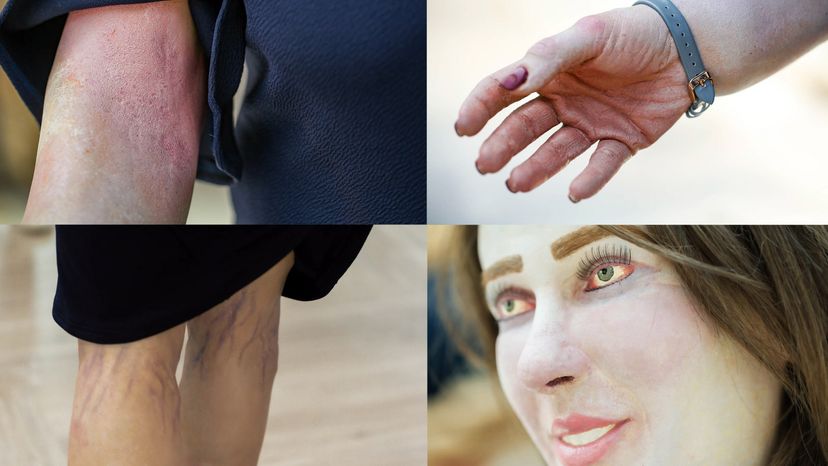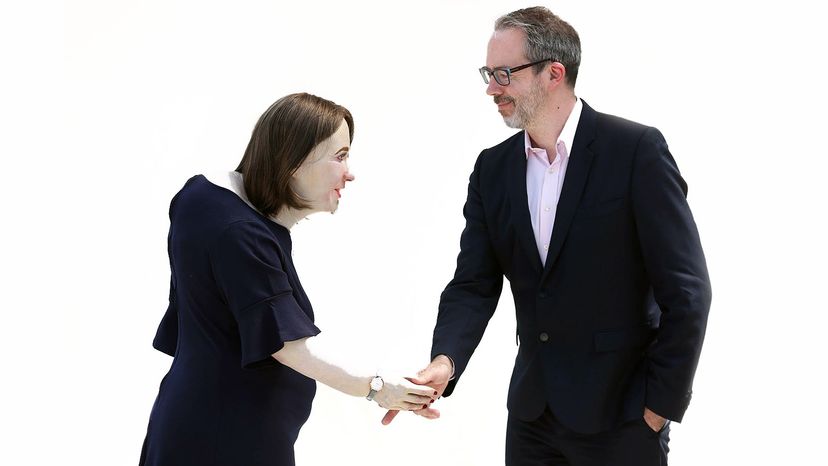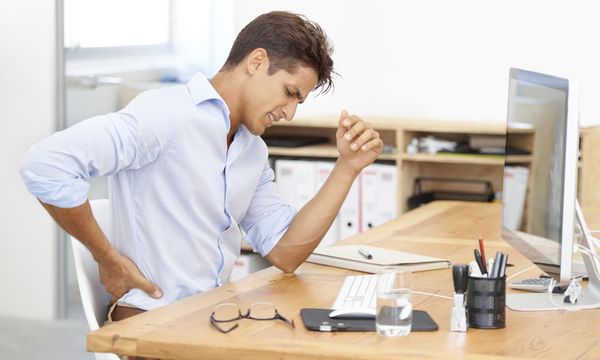At the end of the day, the team behind Emma just hopes her creation wasn't in vain. "We hope that Emma teaches office workers and the public about the serious negative impact that modern working behaviours can have on our bodies," Dettler-Bates says. "We hope that people better consider their well-being at work."
Dettler-Bates says that Fellowes Brands has come up with specific takeaways for individuals and businesses alike, in hopes of encouraging more healthful work habits at every level to avoid long-term health damage as a result of the office environment:
- Avoid sitting for long periods of time
- Take regular breaks and stretch session
- Change positions often
- Move more during your day-to-day working lives
- Use sit-stand desks to increase movement
- Working comfortably with ergonomic equipment like foot, back and wrist supports
- Try walking meetings
When it comes to the actions businesses can take to prevent workers from suffering Emma-like fates, Dettler-Bates says organizations need to prioritize employee health in concrete, personalized ways. "Companies need to ensure that they are complying with legal requirements and conducting workstation risk assessments for their employees," she says. "This will identify individual needs to ensure employees are working comfortably and with the correct posture. Ergonomic solutions such as monitor risers and wrist supports can help to position screens and input devices to reduce strain and discomfort."
Dettler-Bates also adds that more movement is a must in the workplace and that companies ought to investigate the implementation of healthy workspace solutions like height adjustable desks and sit-stand desk converters. "More radically, they could look at ways to combine office work and physical work," she says. "Some progressive organizations are already encouraging their workers to stay physically fluid throughout the day. A few are discouraging sedentariness by offering myriad working locations and sit-stand spaces to use throughout the office and promoting 'walking meetings.'"
And while we all know more movement would probably serve us well in our mostly-sedentary lives, Dettler-Bates points out that some less obvious factors took a toll on Emma throughout her 20 years on the job, and individuals and companies should be aware of their effects.
"Air quality, artificial lighting, germ-laden surfaces and poor-quality building materials can all make us ill," she says. "Organizations should act against poor office air conditioning and the increasing use of vapour producing artificial materials to avoid Sick Building Syndrome (SBS)." Researchers define SBS as "a situation in which the occupants of a building experience acute health- or comfort-related effects that seem to be linked directly to the time spent in the building."
To combat at least some of these negative outcomes, Dettler-Bates says it's essential for workers to take in some benefits from the great outdoors, even if they're stuck indoors all day. "Natural light stimulates metabolism, controls hormonal balance and the immune system, and promotes cell replenishment; artificial light removes these benefits," she says. "It can also negatively impact workers' internal clocks, making them sleepy in the day and restless at night. That's why it is so important offices have as much natural light as possible."
"I hope Emma gives a wake-up call to other office workers, like she did to me," Higham says. "With so many of us spending so long working at desks these days, we really need to reassess our office behavior and exercise a little more self-care. But I hope it also makes employers think about what they expect from their employees. Not only is common courtesy to care about your team, it's also good business sense. A healthy worker is a much more productive one!"



